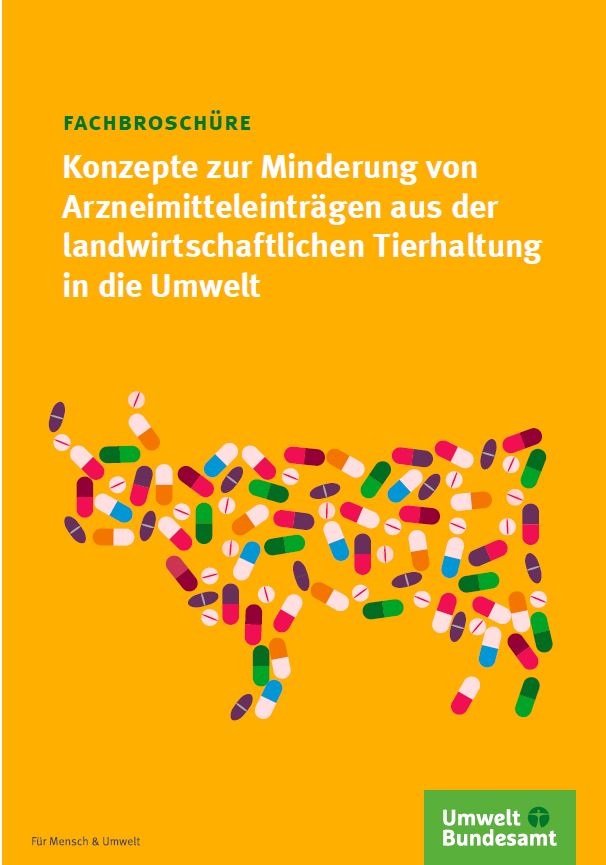Veterinary medicinal products (VMPs) and their metabolites are increasingly becoming the focus of scientific and public debate as environmental contaminants. The project developed an overview of research results, mitigation measures and concepts to reduce the inputs into the environment of veterinary pharmaceuticals derived from agriculture. The results are summarised in the handbook "Concepts for Mitigating Veterinary Pharmaceutical Inputs from Agriculture into the Environment."
Background
In the discussion on veterinary pharmaceuticals and their metabolites as environmental contaminants, two major issues are distinguished:
- The emergence and spread of antibiotic resistance, partly caused by the consumption of antibiotically active veterinary medicines in intensive agriculture.
- The environmental impact of veterinary pharmaceuticals, which may affect the quality of soil, groundwater and surface water (and thus raw water and drinking water) as well as ecotoxicological consequences for soil, fertiliser and aquatic organisms.
As in the case of pharmaceuticals for human use, veterinary pharmaceuticals are only partially absorbed by the animal's body, while significant proportions of the active substances are excreted unchanged or as metabolites (for the compound group of antibiotics, this rate is between 40-90%). These biologically active substances are released into the environment when for instance animal excreta are applied to agricultural land as manure. From the agricultural land, veterinary compounds and their metabolites can seep through the unsaturated soil zone into the groundwater or reach surface waters through drainage or surface runoff, where they can impact aquatic organisms. Thus, veterinary products can have negative ecotoxicological effects on dung organisms (such as dung beetles) as well as soil and water organisms. The environmental impact of veterinary medicines and metabolites thus directly affects soil quality, as well as the quality of groundwater and surface water. If veterinary pharmaceuticals enter raw and drinking water as a result of groundwater and surface water pollution, they may also have an impact on human health.
Project objective
The aim of this project was to provide an overview of research results, measures and concepts for reducing the release of veterinary pharmaceuticals into the environment. For this purpose, a literature review and media analysis was carried out, focusing on concepts and results from Germany, but also including international research results.
The project results are summarised in the handbook "Concepts for Mitigating Veterinary Pharmaceutical Inputs from Agriculture into the Environment" (Konzepte zur Minderung von Arzneimitteleinträgen aus der landwirtschaftlichen Tierhaltung in die Umwelt), developed for experts and practitioners. In addition, they were communicated to an interested stakeholders in a technical discussion with representatives of various authorities and actor groups.
Ecologic Institute assembled an interdisciplinary and experienced project team with extensive expertise in different aspects of this complex topic. The team consisted of staff from the Ecologic Institute in Berlin, the FoodNetCenter of the University of Bonn, the Institute of Crop Science of the University of Hohenheim, and HYDOR Consult GmbH.
The project was led by Ecologic Institute.





